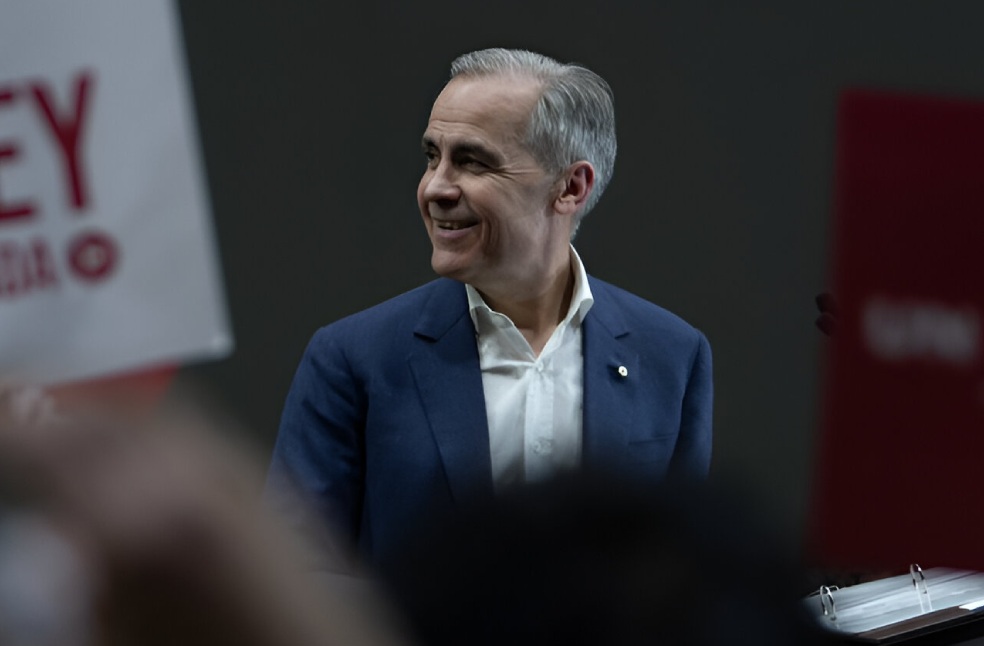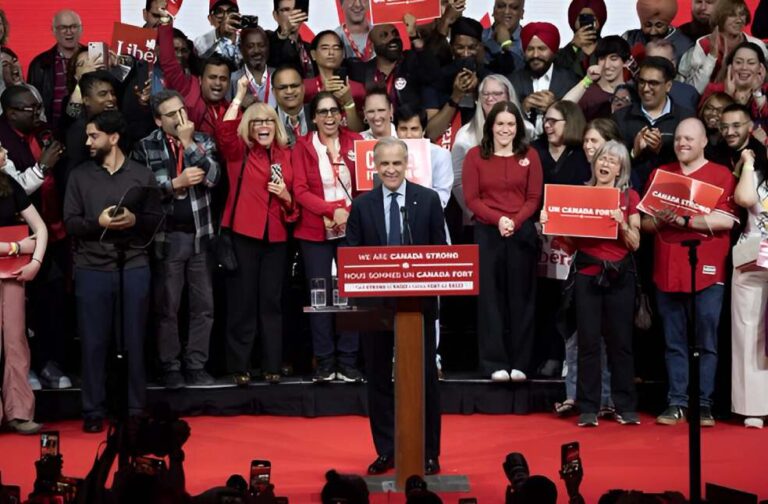Canada: Canada’s Liberal Party has won a fourth term in office, completing a spectacular political comeback under the leadership of Mark Carney, the former central banker turned political newcomer.
Carney’s victory marks a defining moment for the country’s political future and sets the stage for an unprecedented confrontation with Donald Trump’s return to the U.S. political stage. Carney warned supporters that Trump wanted to break us, so that America can own us. To loud cheers from the crowd, he declared that, “That will never, ever happen.”
Carney signalled a dramatic shift in foreign policy, proclaiming the era of U.S.-led global trade as over and calling for a fundamental realignment of Canada’s international relationships. While the full seat count remains unclear, early results suggest the Liberals may once again need support from other parties to govern most likely the New Democratic Party, as in the previous Parliament.
LIVE: Thank you, Canada • EN DIRECT : Merci Canada https://t.co/E4uJHXmF1c
— Mark Carney (@MarkJCarney) April 29, 2025
Combined, the two progressive parties appear to have the numbers to pass legislation, though the NDP suffered a historic collapse on election night. Jagmeet Singh, leader of the NDP, announced he would step down after losing his seat, capping a disastrous showing that left the party without official status for only the second time in its history.
From collapse to comeback
The result is a tremendous turnaround for the Liberals, who just months ago were widely expected to suffer electoral defeat. Under Justin Trudeau, the party had grown deeply unpopular by the end of 2024, racked by internal divisions and voter fatigue after nearly a decade in power.
Carney, who was sworn in as prime minister only nine days before calling the snap election, took an enormous political gamble. A loss would have made him the shortest-serving prime minister in Canadian history. Instead, his surprise entry into politics and bold positioning against Trump re-energised Liberal support and collapsed the Conservatives’ long-standing poll lead.
Trump’s shadow over the campaign
The campaign was shaped in large part by Trump’s threats toward Canada, including economic coercion, trade disruptions, and even provocative remarks about annexation. These remarks appeared to galvanise support around Carney, who portrayed the election as a battle for Canadian sovereignty.

Pollster David Coletto described the shift in public sentiment as ‘absolutely without precedent,’ driven by Trudeau’s deep unpopularity and the perceived threat Trump posed to Canada’s future.
Pierre Poilievre’s Conservatives had called for an early election, riding high on a 25-point poll lead late last year. But that support collapsed in the final weeks, leaving the party stunned.
The election also marked a dramatic consolidation of political power between Canada’s two major parties. For the first time in nearly 70 years, the Liberals and Conservatives captured more than 80 percent of the national vote, signalling the decline of smaller parties including the Bloc Québécois and Greens.
As Carney celebrated on stage in Ottawa, the mood among supporters was euphoric. Ian Laroque, a campaign volunteer, summed up the night, stating that, “He’s not a polished politician. But he’s the kind of person we need to lead the country right now. It’s not every day you get an economist during an economic crisis.”



